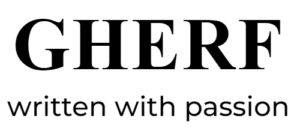Social media has revolutionized the way young adults interact with each other, especially within their romantic relationships. While social media has brought people closer together, it has also led to new and concerning issues. One such issue is social media jealousy, which can quickly escalate into controlling and aggressive behavior, ultimately leading to intimate partner violence (IPV).
Intimate Partner Violence
According to a longitudinal study conducted over a year, social media jealousy and IPV perpetration are mutually reinforcing, leading to a vicious cycle of violence. The study was conducted by Marianne Emond, Marie-Pier Vaillancourt-Morel, Sarafina Metellus, Audrey Brassard and Marie-Eve Daspe included two samples, comprising 111 couples and 286 individuals involved in a romantic relationship, who completed online questionnaires at two different time points over the year. The results of cross-lagged panel analyses showed a positive and bidirectional association between social media jealousy and IPV perpetration over time.
This study, named “Social media jealousy and intimate partner violence in young
adults’ romantic relationships: A longitudinal study” underscores the need for young adults to be more mindful of their social media usage and the potential risks it poses to their romantic relationships. Social media is a prime location for the emergence of jealousy in romantic relationships. Young adults are a particularly vulnerable age group regarding social media jealousy and IPV.
Does social Media lead to Jealousy?
Jealousy is frequently reported among the situational factors that can trigger violent behaviors in romantic partners. This highlights the risks associated with social media use in young adults’ romantic relationships. As social media’s importance continues to grow in young adults’ social lives, it is crucial to sensitize them to the potential risks associated with their use, particularly regarding IPV prevention and intervention efforts targeting this pivotal period for learning healthy and egalitarian romantic relationships.
With these being said, the findings of their study shed light on the dark side of social media and underscore the need for greater awareness of its potential risks. The study also emphasizes the importance of IPV prevention and intervention efforts targeting young adults to address the issue of social media-related violence in romantic relationships. You can read the study here.
By being mindful of their social media usage, young adults can learn healthy and egalitarian romantic relationships and reduce the risks associated with social media-related IPV.

